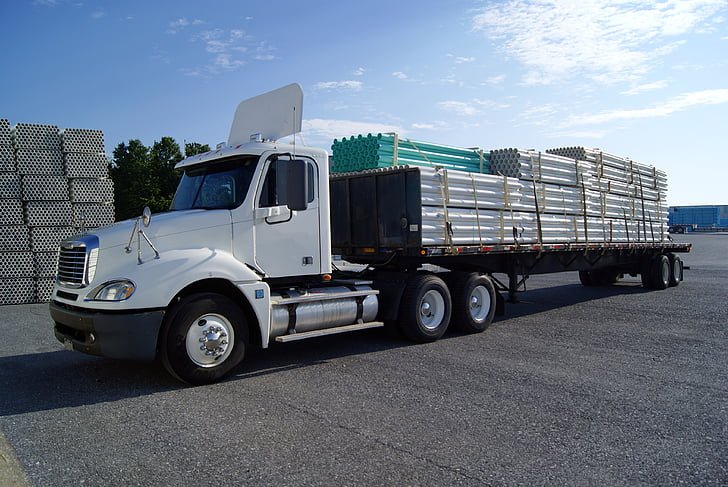Are you planning to start a new business and want to know How to Start a Transportation Business? The key to your success might lie in starting a delivery business. The transportation business has numerous profitable opportunities, ranging from ride-sharing services to freight operations. However, where do you start?
You can easily follow this blog on How to Start a Transportation Business. If all you have right now is just one car or a fleet, this guide will provide the information and advice to make your business go in the right direction.
It also involves researching and determining who your market is and getting all the permits and licenses you may need. Therefore, we will also discuss effective marketing methods that could assist in getting new customers and remaining competitive in the transportation market.
Starting a delivery business will be difficult, but that doesn’t mean you should hesitate. After reading the roadmap from beginning to end, you’ll be inspired and confident to take on all the business challenges and pursue your entrepreneurial dreams. We are pleased to be on this thrilling ride together, so remember to fasten your seat belt.
Table of Contents
Is Starting a Transportation Business Right For You
Startups in the shipping industry can be fun and rewarding. Before starting, consider whether it fits your needs. Maintaining a transportation business requires hard work, planning, and the ability to adjust to a constantly shifting field.
Passion and interest in the shipping business are the first things you should consider. Are you genuinely interested in the planning and operation of moving people or things from one location to another? Genuine interest in the field is essential because it will help you stay motivated and dedicated to the business.
Check your knowledge and skills next. Although experience in shipping, customer service, or management will be helpful, it is not required if you aim for a transportation industry position. Planning, communication, and problem-solving skills are essential to run a service business successfully.
Additionally, think about the money side. A significant cost may involve starting a transportation business, especially if you want to buy cars or rent office space. Knowledge of your financial position and the ability to get money if needed are essential.
After looking at these things and deciding that starting a transportation business is best for you, you should do market research.
Conducting Market Research For Your Transportation Business
Conducting a thorough market study is very important before starting your transportation business. This will assist you in finding possible buyers, comprehending their requirements, and judging the other companies in the area. Here are some steps that will help you do it:
Define your target market: Firstly, determine your perfect customers. People who need transportation services, companies that need freight operations, or both? Carry out a study of the age, gender, location, and specific requirements of your target audience.
Analyze the competition: Research what other transportation companies around there are selling, how much they are priced, and how they advertise. Identify the vacant niches your business can fulfill and the traits that differentiate you from competitors.
Understand industry trends: Provide information about the most recent updates and trends in the transport industry. These include changes in rules, technological improvements, and buyer tastes. Knowing these trends will help your business change and do well in a changing field quickly.
Gather customer feedback: Talk to possible customers about their transportation needs and problems. Questionnaires, conversations, or focus groups can be used to do this. Use this knowledge to improve your business plan and make your services fit what customers want.
Through thorough market research, you can gain valuable insights that will help you plan your business strategy and give you an edge in the transportation industry.
Creating a Business Plan For Your Transportation Company
An excellent business plan is needed for any transportation startup. This document shows your business’s goals, tactics, and expected profits. What should your transportation business plan include?
Executive summary: This part outlines your transportation company, including its purpose, vision, and foremost goals. So that possible investors or loans will be interested. The process should be short but compelling.
Company description: Include information about your transportation business’s legal framework, location, and background in your company description. Include any particular features or benefits that make your business stand out.
Market analysis: Summary of your market study results, including information about your target market, customer data, and the market landscape of your competitors. This part should have a lot of knowledge about the transportation business and market trends in this section.
Services and pricing: Details about the transportation services you want, including any unique or specialized ones, and their prices. Explain how your price system fits with market demand and industry standards.
Marketing and sales strategy: Explain how you will advertise and sell your products to get people and make money. Details about advertising channels, promotional events, and plans for getting new customers should be included.
Operations and logistics: Describe how your transportation business works, such as handling your cars, training your employees and establishing your technology systems. Justify your approach to making sure that the service is delivered quickly and reliably so that you can meet customer standards.
Financial projections: Give accurate figures of your income, costs, and returns on investment. Showing this part’s possible return on investment is very important for getting investors or loans.
For example, as your transportation business changes, you should regularly review and update your business plan. Making decisions and staying on track with your business goals is like a road map.
Choosing The Right Type Of Transportation Business
The transportation industry has different types of businesses, and every company has demands and challenges. When starting a transportation business, select the type of transportation that matches your hobbies, financial limitations, and target market. Consider these well-known choices:
Ride-sharing service: This can also be great for applications like Uber and Lyft. With the use of a digital instrument, this becomes the link between the drivers and the customers. Therefore, the first step is to check how saturated and competitive the market in your region is and then enter this very competitive market.
Freight logistics: If you’re good at logistics and supply chain management and want to make money, starting a freight logistics business can be an appropriate option. It involves transporting goods for companies, proper scheduling, and effective organization of logistic processes.
Specialized transportation: You should offer exclusive transportation services to attract customers or work with specific businesses. This could include traveling for medical reasons for patients, high-class clients, or pet owners transporting their pets. Specializing can help you find a niche market and set your business apart from other similarly-themed businesses.
Package delivery: With the rise of online shopping, starting a package delivery service can be a fun and successful business. This includes bringing goods to customers’ homes on behalf of online stores. When starting this kind of delivery business, it’s essential to consider the facilities and logistics needs.
Consider your resources, skills, and market demand when picking the correct type of transportation business. Look for holes in the market and evaluate the competition by doing market research. Selecting the appropriate type of delivery company will set you up for success in the field.
Registering And Licensing Your Transportation Business
Before starting your transportation business, finding out the rules and getting the appropriate licenses and permits is essential. Ignoring your legal duties could lead to fines or even the closing of your business. Here are some steps that will help you get registered and acquire a license:
Business registration: Tell the proper government bodies about your transportation business. Making this happen usually includes picking a name for the company, submitting the required papers, and paying registration fees. Legal help is needed to follow all local, state, and federal rules.
Licensing and permits: Different types of service businesses may need other licenses and permits. This can include business driver’s licenses, trailer permits, or permission to work in certain places. For safety, determine the rules for your area and business.
Insurance coverage: Insurance is an essential part of a service business. It covers damages or accidents, which keeps you, your workers, and your customers safe. Talk to an insurance broker to find the right industrial car and liability insurance for your business.
Compliance with regulations: Different rules apply to the shipping business to ensure safety and competitiveness. Learn the laws that apply to you and follow them. For example, read up on driving standards, car inspections, and regulations about working hours.
Securing Financing For Your Transportation Startup
A significant cost may involve starting a transportation business, especially if you want to buy cars or rent office space. Finances must cover these costs to ensure your business’s launch runs smoothly. Here are some financial choices to think about:
Traditional bank loans: Ask banks and other financial institutions about small business loans. You should make a detailed business plan, economic forecasts, and papers to back your loan application. Most of the time, banks loan you the money with collateral and a good credit history.
Small Business Administration (SBA) loans: SBA provides loans tailored to small businesses. High interest rates and better terms are standard with these loans. Examine the SBA loan programs and choose the ones that match your funding needs.
Grants and subsidies: Take a look at free contributions and grants for transportation businesses. Government organizations, nonprofits, and trade associations may invite these events. Locating money that can be earned but not paid back relates to identifying who is eligible and how to apply for it.
Crowdfunding: If you want to gather funds for your transportation company, you can also explore crowdfunding platforms. Make an exciting campaign that supports your business idea and its possible effects. Provide rewards to get people to help and raise money for your business.
Angel investors and venture capitalists: If you have a new and scalable transportation business idea, you might be interested in seed investors or venture capitalists. Get possible investors who work in the transportation field and make a compelling business pitch.
Build a thorough business plan, reasonable financial forecasts, and a well-defined target for your transportation startup before seeking funding. To receive support, you must demonstrate the return on investment and the reliability of your business plan.
Finding And Hiring The Right Employees For Your Transportation Company
Your staff competency will significantly influence the fate of your company. One of the crucial tasks that ensure the proper management of a company and the provision of excellent customer care services is staffing the right people.
Define job roles and responsibilities: Clearly define the roles and responsibilities you need to play in your transportation company. Assess each job’s required qualifications, skills, and experience. Personnel like drivers, dispatchers, customer service reps, and office workers can be included.
Develop an effective recruitment strategy: Make a hiring plan to get qualified people to apply. These things can include posting job ads on online job boards, using social media, and making connections in the transportation industry. Partnering with staffing agencies or driver recruitment services could make hiring easier.
Conduct thorough interviews and evaluations: Screen candidates through interviews, tests, and background checks. Ensure you examine their qualifications and experience and if they match your company’s culture. Apply behavioral-based interview queries to define how effectively they deal with complex problems and challenging situations.
Provide comprehensive training: Provide your employees with training after hiring the right people so that they can do their jobs effectively. This can be implemented through driver training schemes, customer service training, and continuous career development.
Foster a positive work environment: Design a positive working environment that promotes teamwork, collaboration, and employee satisfaction. Offer competitive wages, rewards, and chances to climb the career ladder. Provide incentives and recognition to reward and retain a top-performing person.
The success of your transportation business depends on finding and hiring the correct personnel. Investments in hiring and training employees with the right skills will help you build a solid team that will build a strong foundation and improve your business’s reputation.
Marketing And Promoting Your Transportation Business
Excellent marketing and promotion are vital for acquiring customers and being different from the competition in the transportation industry. undefined
Develop a strong brand identity: Make a striking brand identity that will resonate with your target consumers. Craft a memorable logo, tagline, and other visual elements that highlight the uniqueness of your transportation business. Ensure you use the same brand identity across all your marketing materials and client interactions.
Build a professional website: In this digital era, having a professional site is essential for all businesses. Make a website that displays your transport services, rates, and contacts. If you SEO your site, it will be seen more and receive free traffic.
Utilize online advertising: The most effective way to address your audience is via online marketing tools such as Google Ads or Social Media ads. To attract traffic to your website or booking platform, you are to implement targeted campaigns highlighting the benefits of transport services that you provide.
Establish partnerships: Partner with businesses or organizations running similar programs to expand their reach. Another good strategy is working with hotels, event planners, and travel agencies to offer combined services or advertise for each other. Strive for your transportation business to attend trade shows and related industry events.
Implement referral programs:Give awards to happy customers who inform their friends and family about your transportation services. This is particularly true in the transportation sector, where word-of-mouth endorsements are highly effective.
Leverage social media: Make a strong presence on Facebook, Instagram, and LinkedIn sites. Boost your brand and get customers to stay with you by offering unique content, industry news, and client feedback.
Monitor and optimize marketing efforts: Review and assess your marketing efforts from time to time. Track the critical numbers like website traffic, conversion rates, and customer acquisition costs. By applying this information, boost your marketing strategies and get the best return on your investment.
The transportation business requires one-dimensional and strategic marketing. Make your business successful and attract regular customers with a solid brand, online advertising, and a network of partnerships.
Managing And Growing Your Transportation Business
It is not as if the job of transportation companies is over when they are fully functional. Long-term success requires constant growth as well as proper management. undefined
Efficient operations: Always keep an eye on improving your day-to-day procedures. Streamline operations and increase productivity using technology like fleet management systems and customer relationship management software.
Exceptional customer service: Provide excellent customer service to foster customer loyalty and positive word of mouth. Teach your employees the skill of exceptional customer service, providing quick responses to customer concerns, and going beyond the usual requirements.
Monitor industry trends: Familiarize yourself with the latest developments and trends in transportation companies. This also means new consumer habits, new technologies and new rules. Adhering to these trends will put you in the driver’s seat to win the competition and cater to the ever-changing needs of your customers.
Expand service offerings: You can expand your menu and serve more people with this. Introducing multiple transportation options, new routes, or expansion into other services, such as warehousing or logistics consulting, could add to this issue.
Conclusion: How to Start a Transportation Business
To sum up, How to Start a Transportation Business is a plan that provides answers to those looking to start a transportation business on how to deal with the hurdles involved in running the business.
The guide instructs people by providing them with the necessary information and tools to commence a business. This would entail figuring out what they want to do, looking at the market, creating a plan, getting the required licensing, and finding capital to start the company.
This guide helps transportation field entrepreneurs succeed through marketing, staff recruitment, and keeping abreast of industry changes. However, with a lot of effort, will and ability to strive further, people passionate about entrepreneurship in transportation can turn their dreams into reality.
FAQs
Where Do I Start To Establish A Local Transportation Business?
Get going by exploring the local market, creating a business plan, applying for the needed permits, acquiring the vehicles, hiring and training your staff, marketing your services, and closely following your operations.
What type of transport industry business is the best?
The leader of an excellent transport company depends on location or know-how. The services may include freight brokering, ride-sharing, logistics, specialty transport, and vehicle rental.
What is the role of the transportation business?
The transportation industry involves people and goods moving with the help of means such as road, rail, air, and water. It involves transporting people, cargo, logistics, infrastructure development, and auxiliary services.
What are the stages of setting up a transport business in the UK?
Analyze the market, prepare a business plan, register your business, acquire needed permits, purchase vehicles, get insurance, recruit and train employees, advertise your services, and expand as needed.
Is Transport for London profitable?
Transport for London (TFL) ‘s profitability is determined by running costs, passenger traffic, ticket revenue, and public funding. The fare and other revenue sources maintain it, but it also receives some subsidies and grants to aid its operations.
Follow Probusinesshacks for more business guides!







